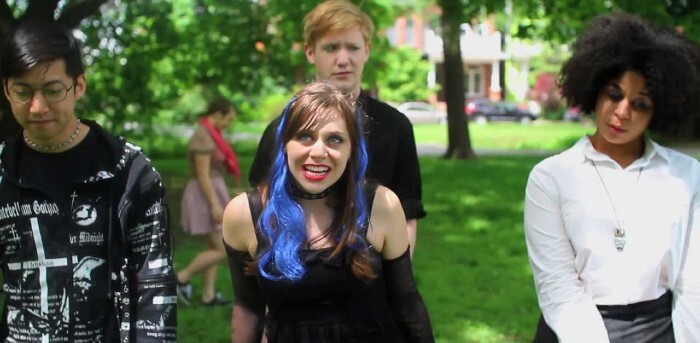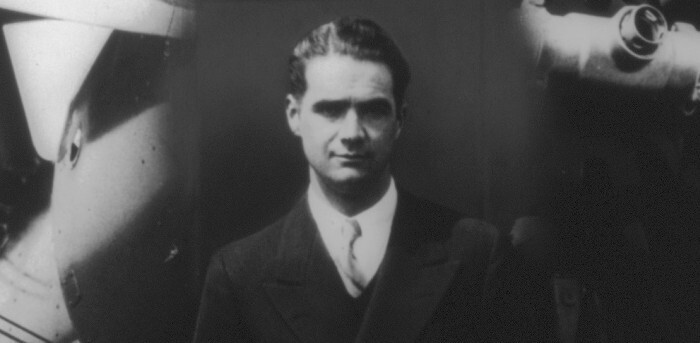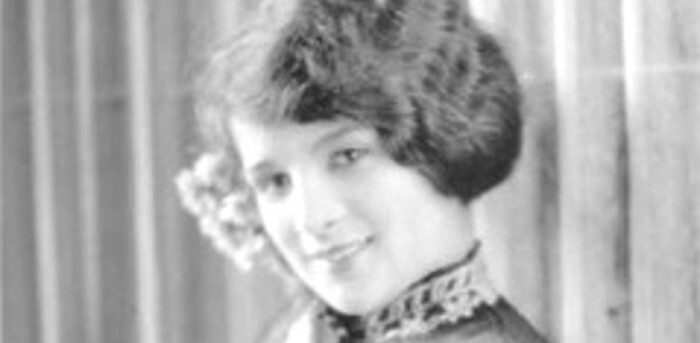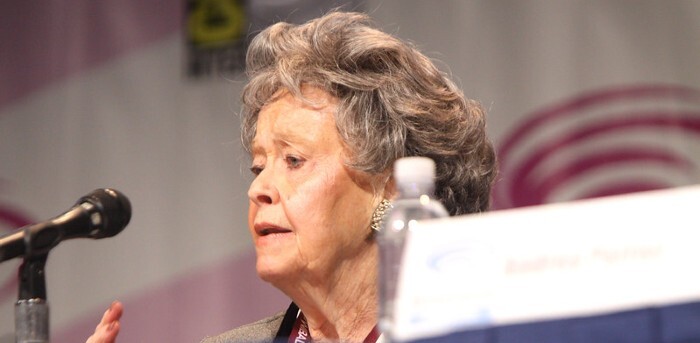15 Literary Frauds Who Almost Got Away With It

(Fox Searchlight Pictures)
The great thing about books is that they transport us to fantastic worlds where draculas roam and wizards exist free of association with J.K. Rowling, but some writers take it too far. Instead of just writing fiction good enough to stand on its own, they have to pretend it really happened -- or, in some cases, set out to make a fool of readers from day one. As if those poor nerds don’t have enough to deal with.
Satan’s Underground

Alongside the debunked account of a psychiatric patient’s “repressed” “memories,” Michelle Remembers, Laurel Rose Willson’s Satan’s Underground kicked off the embarrassing chapter of history that was the Satanic panic of the ‘80s and ‘90s. Not only was Willson’s story of being used by a Satanic cult as an incubator for infant sacrifices obviously made up, she even testified in the McMartin preschool trial after claiming to know the accused, who were the most innocent. She later claimed to be a Holocaust survivor and victim of Joseph Mengele because grifters gotta grift.
Rose Christo

(Mediajunkie Studios)
Under the Same Stars: The Search for My Brother and the True Story of My Immortal, Rose Christo’s memoir of her dubious plan to write the world’s worst fan fiction that everyone would read as a ploy to find the brother she’d lost to the foster care system, was scheduled for publication in 2017. Then her brother miraculously surfaced, insisting that he was super findable and neither of them were ever in foster care, just living with different relatives. Christo stood by her claims but admitted she’d altered documents provided to the publisher, and the book was canceled.
James Frey

After James Frey’s 2003 memoir of addiction, crime, and treatment, A Million Little Pieces, was raised up by America’s favorite chooser of things, Oprah Winfrey, it became the fastest-selling selection of her book club -- and it was mostly lies. Following some internet sleuthing, Frey was forced to admit he’d exaggerated his story, including expanding a few hours in jail to nearly three months and even how his girlfriend died. His career bounced back eventually, but he’s since wisely stuck to fiction.
JT LeRoy

In the late ‘90s and early 2000s, a supposed transgender former sex worker named JT LeRoy published a series of novels based on his childhood that made him the toast of the literary world, walking red carpets and partying with celebrities in a wig and sunglasses deemed a delightful eccentricity. They were actually covering up the identity of Savannah Knoop, the nonbinary in-law of writer Laura Albert, who appeared alongside Knoop as “LeRoy’s” British assistant or American friend, depending on what country they were in (they didn’t think Albert’s accent would fly with actual Brits). In 2005, Albert was unmasked as the writer behind LeRoy and confirmed to be neither transgender, a former sex worker, or most unforgivably, middle-named “Terminator.”
Lee Israel
Possibly the most currently famous literary fraud is Lee Israel, who got rich selling forged letters from dead celebrities and got Melissa McCarthy nominated for an Oscar. She started out as a respectable biographer, but when the work dried up, she decided to use her research skills for evil, eventually experiencing her biggest success with the “barely contrite memoir” detailing her crimes, Can You Ever Forgive Me?
Clifford Irving

In 1971, Clifford Irving devised the seemingly perfect scheme: an official biography of Howard Hughes, whose reclusive eccentricity had capitived the world and (Irving assumed) ensured that Hughes would never come forward to discredit him. Irving’s efforts weren’t inconsiderable: He pored over Hughes’s life and letters, flew all around the world “with Hughes,” and even opened a bank account in his name. Then, on the even of publication, Hughes actually did come forward. Oops.
The Hitler Diaries

(Bundesarchiv, Bild 183-H1216-0500-002/CC-BY-SA/Wikimedia Commons)
In 1983, the “weird guys who are a little too into World War II” community was rocked by a prominent German publication’s announcement of their intention to publish Hitler’s recently resurfaced diaries, which revealed such as explosive information as the Fuhrer’s ignorance of the treatment of the Jews -- for about two weeks, anyway. That’s how long it took the German Federal Archive to conclude that the diaries, which had actually been previously authenticated by some subsequently very embarrassed experts, were fakes, and not even very good ones.
Go Ask Alice
Though it reads like it was written by the dad on Freaks and Geeks, the “anonymous” “diaries” of a drug-addicted and eventually dead teen in the late ‘60s were a literary sensation until their author was revealed to be Beatrice Sparks, who claimed she was given the diaries but later built an entire empire on suspiciously convenient narratives “given” to her by troubled teens. Go Ask Alice is now acknowledged by its publishers as a work of fiction.
Helen Demidenko
In 1994, Helen Demidenko (real name Helen Darville) published The Hand That Signed the Paper, a history of her family’s involvement in the Holocaust in retaliation for “repression in the Ukraine” by “Jewish Bolsheviks.” You might think no one would lie about doing a Holocaust, which might be why the book was so well received, but it turned out Darville had zero Ukrainian ancestry and made the whole thing up. She’s now a conservative pundit, which might explain some things.
Micha Defonesca

Fake Holocaust memoirs are both an entire literary genre and circle of hell, but Misha Defonesca enjoyed success and acclaim for Misha: A Memoir of the Holocaust Years for years longer than it should have taken people to realize something was amiss about the story of a girl who fled the Nazis to be literally raised by wolves. After her publisher dug up records proving she was younger than she said and had gone to school during the years she claimed to be cubbing it up, Defonesca was forced to admit she’d made the story up.
The Cradle of the Deep

The Cradle of the Deep was an equally fantastic tale of Joan Lowell’s childhood at the turn of the 20th century, raised at sea among no one but a bunch of brawny men from infancy to nearly adulthood, when she escaped the sinking ship by swimming to shore with a pack of kittens on her back. It was eventually revealed that Lowell had only spent a few months at sea and the ship never even sank, but to be fair, it was a lot easier to lie about stuff back then.
Margaret Seltzer
The first clue that Margaret Seltzer’s 2008 memoir of growing up as a Native American foster child in the gang lands of South Central, Love and Consequences, wasn’t entirely on the up and up probably should have been the wealth of evidence she provided, which included a letter from her gang leader (not the type of person known to be overly disclosing, especially in writing) and pictures of former “foster siblings” who could conveniently no longer be contacted. It wasn’t until after the book was published, though, that Seltzer’s sister found out about it and let everyone know she was, in fact, a rich white girl from Sherman Oaks.
The Education of Little Tree
The Education of Little Tree, the memoir of a half-Cherokee boy who learns to appreciate the Cherokee way of life after being orphaned and taken in by his grandparents, was a runaway success since its 1976 publication and even turned into an acclaimed movie in 1997. That last part is pretty weird, since it was revealed six years earlier that not only was its author a white man, he was a huge racist who had written speeches for George Wallace, one of history’s final bosses of racism. The book is inexplicably still published despite objections from Native American scholars, who say it promotes stereotypes and even botches the Cherokee language.
Michael Gambino

Though marketed as fiction, The Honored Society was a novel from the perspective of the grandson of legendary Mafia boss Carlo Gambino by a man named Michael Gambino, so it wasn’t exactly a logical leap to assume the story was based in fact. Unfortunately, the writer (real name Michael Pellegrino) apparently forgot that there were real Gambinos still around and they’re pretty protective of their name. After Gambino’s actual son started making lawyerly noises, Pellegrino’s publisher pulled the book and sued him and everyone who ever knew him.
Ed and Lorraine Warren

You’d have to be pretty gullible to believe Ed and Lorraine Warren’s tales of Amityville Horrors and Conjurings, but not only did they themselves not believe the “crazy people” (their words) who came to them for help, they embellished their stories even further. One writer who worked for them claims Ed Warren told him to “just use what you can and make the rest up,” and the family The Haunting in Connecticut was based on sued them for “concoct a phony story about demons in an attempt to get rich and famous at our expense.” They both died extremely rich and those movies are still getting made, though, so you could argue they’re still getting away with it.
Top image: Fox Searchlight Pictures